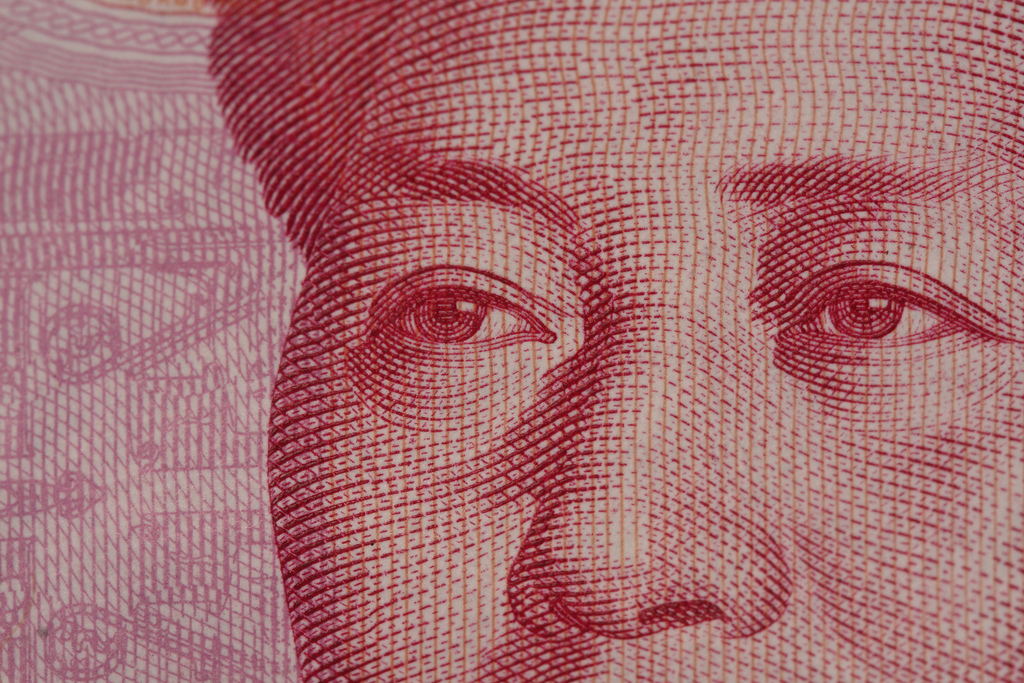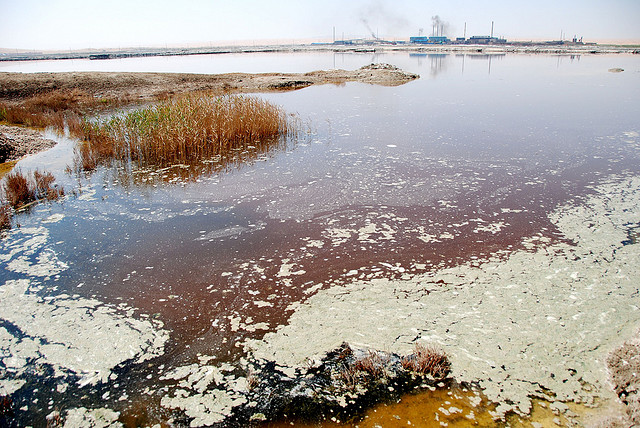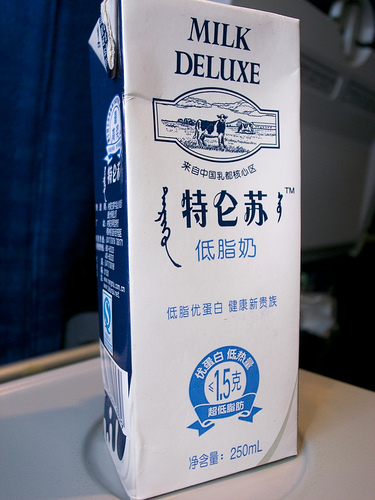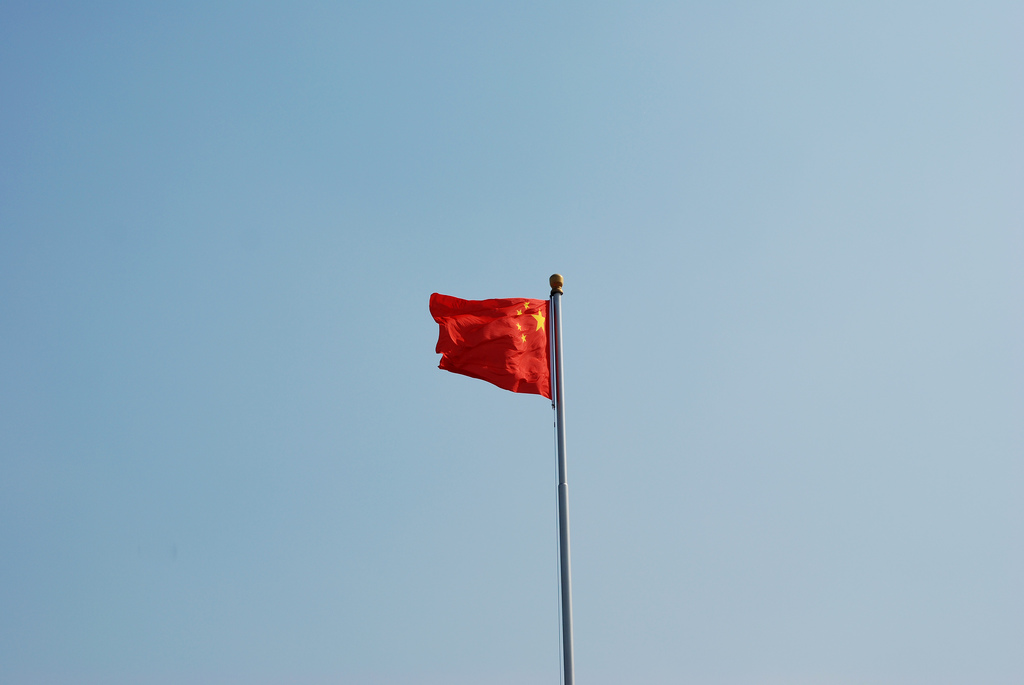Posted: September 2nd, 2012 | Tags: auction, China, delay, energy, natural gas, shale gas, tender | No Comments »

The story after the jump was written by me and James Byrne for Interfax Natural Gas Daily, a digital publication that reports on the global gas industry. The story was published on 21 August 2012 (subscribers only) and looks at the setbacks to China’s latest auction of rights to prospect for shale gas, which is a form of natural gas found in shale rock deep underground.
China is believed to have the largest recoverable reserves of shale gas worldwide, enough to last nearly 200 years at the country’s rate of gas consumption in 2011, but the method of extracting shale gas – hydraulic fracturing or ‘fracking’ – is environmentally contentious.
Read the rest of this entry »
Posted: February 1st, 2012 | Tags: business, China, Communist Party, state-owned enterprises, Sunday Times | No Comments »

The Sunday Times published a story (paywall) on the weekend about China’s top 10 most powerful figures in the country’s state-owned business sector. The figures sit atop of a diverse range of business empires that have two major things in common: they are owned by the government, and hold a near monopoly in their industry. Several of the heads are also so-called princelings, the offspring of Communist revolutionaries that helped found modern-day China in the 1940s and whose families continue to wield enormous political power. In February 2011, Xinhua reported that the Chinese government directly controlled 121 companies worth roughly $3.65 trillion through the State-owned Assets Supervision and Administration Commission.
Read the rest of this entry »
Posted: August 14th, 2011 | Tags: China, China Central Television, media, press freedoms, Xinhua | No Comments »
As NATO continues to strike Gaddafi’s forces in Libya, behind the scenes lurks China with an altogether different show of strength. Pay attention to the microphone flags of news agencies attending this press briefing on Saturday. Read the rest of this entry »
Posted: August 8th, 2011 | Tags: Communist Party, cooking oil, NDRC, price controls | No Comments »

The jug of cooking oil may not occupy pride of place in your kitchen, but in China it has become an unlikely gauge of the country’s economy. The Financial Times and Wall Street Journal (subscriptions required) both reported Wednesday that a major producer of cooking oil in China, Wilmar International, had raised the retail price of its products by 5%.
Read the rest of this entry »
Posted: March 8th, 2011 | Tags: China, environment, environmental journalism, Jonathan Watts, pollution, Shanghai, The Guardian, When a Billion Chinese Jump | No Comments »

Late on in The Matrix film, there is a scene when Hugo Weaving’s Agent Smith theorises to the captured Morpheus that humans are a disease, a “cancer of this planet”. This is a tad much for Jonathan Watts, Asia environmental correspondent for the Guardian newspaper. He downgrades us to locusts instead. Read the rest of this entry »
Posted: February 20th, 2011 | Tags: 2008 milk powder scandal, China, food safety, Friso, leather milk, milk powder | No Comments »

Media reports this week of a new food safety scare has dealt a fresh blow to China’s food industry. Worries over the quality and safety of food grown in the People’s Republic are nothing new. Last year alone, Chinese shoppers dealt with painted oranges and toxic cowpeas. But the new fears concern the dairy industry, which is still recovering from a scandal in 2008 that killed six children and hospitalised thousands of others. Read the rest of this entry »
Posted: January 13th, 2011 | Tags: 2008 milk powder scandal, China, food safety, Friso, milk powder, Sanlu Group | No Comments »
A “quintessentially American” menu provided the culinary anchor for last week’s state dinner between China and the U.S., the first since 1998. Maine lobster, rib eye steak, apple pie – this was classic American fare at its heartiest with ingredients undoubtedly sourced from the finest local providers.
The assured provenance and quality of the meal was probably the furthest thing from President Hu Jintao’s mind during the dinner. His compatriots back home do not have that same luxury. A series of safety scandals in the past several years have rocked consumer confidence in China’s food industry – none more so than in baby milk formula. Read the rest of this entry »
Posted: December 20th, 2010 | Tags: Caijing, Cheng Binghao, IPO, Kaixin001, Northern Light Venture Capital | 1 Comment »

Kaixin001.com (开心网), one of China’s leading social networking sites, plans to launch an initial public offering (IPO) in the U.S. next year, according to Chinese media.
The Chinese-language Caijing magazine reported last Friday that Kaixin001 (“Happy Net”) would float on an undisclosed U.S. stock exchange in 2011. Read the rest of this entry »
Posted: December 19th, 2010 | Tags: censorship, China Times, CNN, Communist Party, cooking oil, NDRC, political reform, Wen Jiabao | No Comments »
A public spat in China this week between a top government body and an important industry has shed some light on the Communist Party’s inner workings. The reason? Cooking oil. Bear with me on this one.
In early December, the National Development and Reform Commission, China’s state economic planner, convened cooking oil producers in Beijing. The commission requested that producers increase cooking oil supplies in the run-up to next year’s Chinese New Year holiday – without lifting prices. Read the rest of this entry »
Posted: December 11th, 2010 | Tags: censorship, China, Government Leaks, Julian Assange, June 1, transparency, wikileaks | No Comments »

“WikiLeaks has had more scoops in three years than the Washington Post has had in 30,” tweeted media commentator Clay Shirky recently. The Afghan war logs, Iraq war logs and now #cablegate – WikiLeaks has enjoyed huge publicity this year for its muckraking leaks. Journalists like to quip that they’re not doing their job properly if somebody, somewhere isn’t angry. Judging by the U.S.’s reaction to #cablegate, WikiLeaks is doing plenty right then. Read the rest of this entry »






